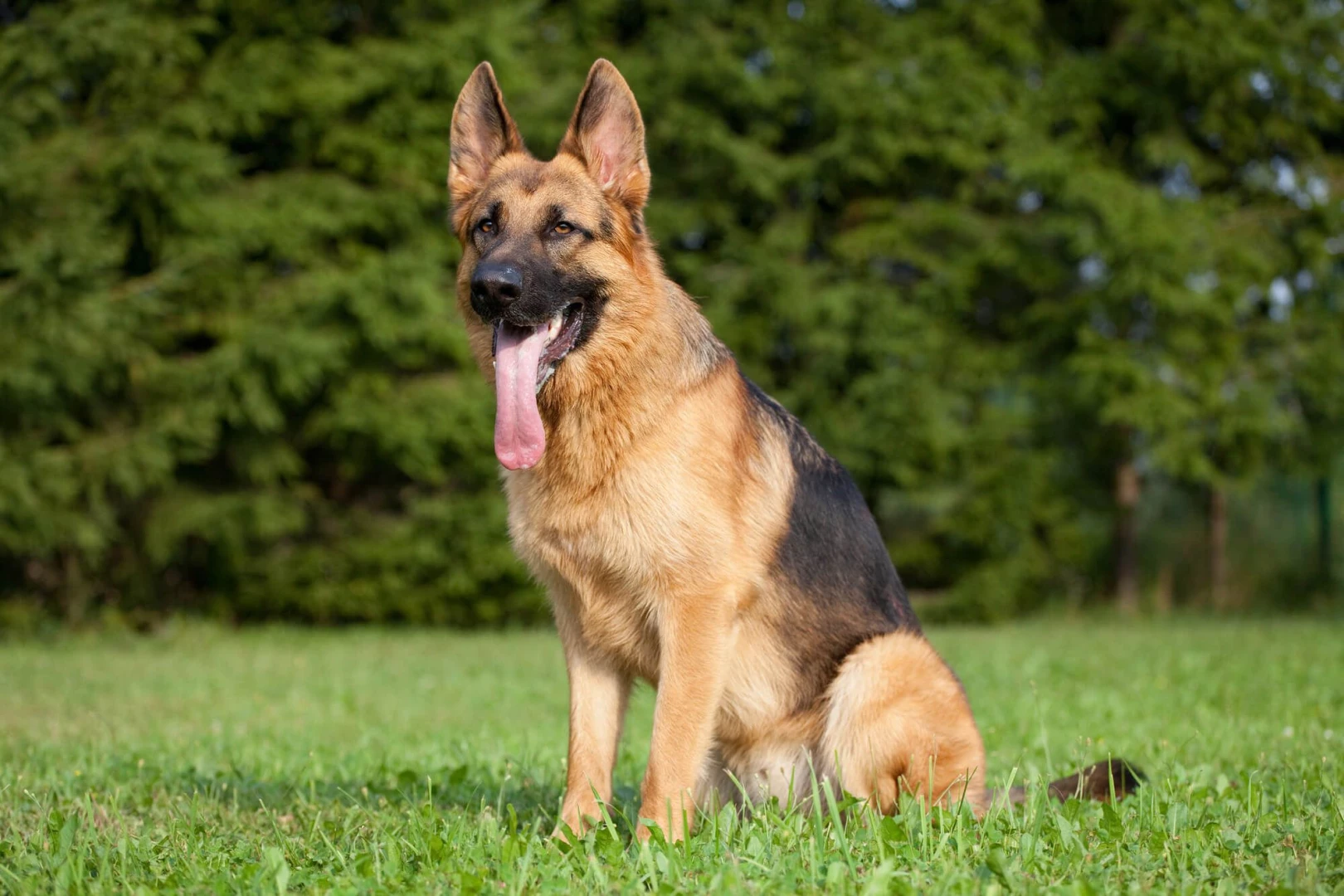On this page
German Shepherd Care: Daily Routines and Essential Tips for Owners
Owning a German Shepherd is a rewarding experience filled with loyalty, intelligence, and boundless energy. However, it also comes with specific responsibilities and challenges that every potential owner should be aware of. Understanding the daily life of a German Shepherd can help you prepare for the journey ahead, ensuring a harmonious relationship between you and your canine companion. This article delves into what to expect when living with a German Shepherd, covering everything from daily routines and training to nutrition and health concerns. Notably, changes in dietary needs as your German Shepherd ages will be highlighted, emphasizing the importance of adapting their nutrition to maintain optimal health.

Morning Routine: Setting the Tone for the Day
Starting the day with your German Shepherd sets the foundation for their behavior and energy levels. Typically, mornings involve a brisk walk to stimulate their senses and provide essential exercise. According to Dr. Emily Thompson from the American Veterinary Medical Association (AVMA), "A structured morning routine helps in reducing anxiety and promotes a sense of security in German Shepherds." Unlike the more laid-back Labrador Retriever, German Shepherds thrive on consistency and mental stimulation from the outset of the day.
☀️ Early Morning Walk: Essential for physical exercise.
🍽️ Healthy Breakfast: Balanced meals tailored to their age and activity level.
🧠 Mental Stimulation: Interactive toys or short training sessions.
This structured start not only energizes your German Shepherd but also curtails unwanted behaviors later in the day. As the morning progresses, transitioning smoothly into daytime activities ensures your pet remains engaged and happy.

Daytime Activities: Keeping Your German Shepherd Engaged
German Shepherds are known for their high intelligence and need for mental stimulation. During the day, activities should be varied and enriching to prevent boredom and destructive behavior. Dr. Michael Lee from VCA Animal Hospitals emphasizes, "Engaging your German Shepherd in tasks or training exercises can significantly enhance their cognitive functions and overall well-being."
🧩 Puzzle Toys: Encourage problem-solving skills.
🏃♂️ Physical Exercise: Play fetch or agility training.
📚 Continued Training: Reinforce commands and introduce new ones.
In comparison to the more independent Siberian Husky, German Shepherds require a higher level of interaction and mental challenges. Keeping them occupied with diverse activities fosters a stronger bond and a well-behaved companion.

Training and Behavior Management
Training is a cornerstone of German Shepherd ownership. Their eagerness to learn makes them highly trainable, but it requires consistency and patience. "Integrating training sessions into your daily routine not only teaches obedience but also strengthens your relationship with your German Shepherd," says Dr. Laura Martinez from The American Kennel Club (AKC).
📅 Scheduled Training Sessions: Short and frequent to maintain focus.
🎯 Positive Reinforcement: Reward-based training methods.
📖 Consistent Commands: Use the same cues for commands to avoid confusion.
In contrast to breeds like the Bulldog, which may be more stubborn, German Shepherds respond exceptionally well to structured training environments. Regular training ensures they remain disciplined and responsive to commands.
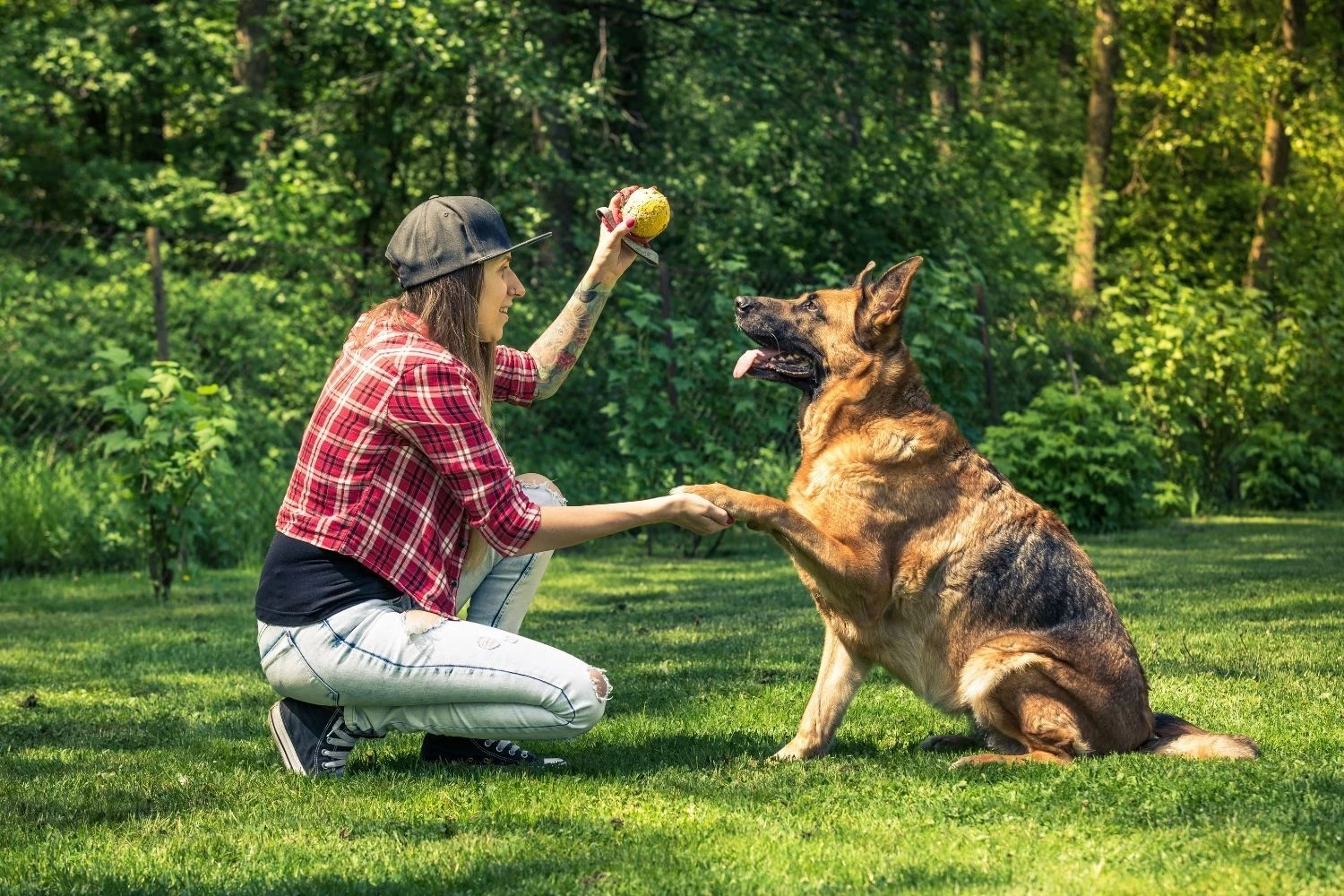
Dealing with Common Behavioral Issues
Despite their many positive traits, German Shepherds can exhibit behavioral issues if not properly managed. Common challenges include separation anxiety, excessive barking, and destructive chewing. "Addressing these issues promptly with appropriate training techniques is crucial for a harmonious household," advises Dr. Sarah Nguyen from PetMD.
🚫 Address Separation Anxiety: Gradual desensitization techniques.
🔇 Curb Excessive Barking: Identify and eliminate triggers.
🛠️ Prevent Destructive Chewing: Provide suitable chew toys and supervision.
When compared to the more easygoing Beagle, German Shepherds require a proactive approach to behavior management. Understanding and addressing these issues early can prevent long-term problems and ensure your German Shepherd remains a well-adjusted member of the family.

Feeding and Nutrition Throughout the Day
Proper nutrition is vital for the health and longevity of your German Shepherd. Their dietary needs can change as they age, requiring adjustments to meal frequency and food composition. "A balanced diet tailored to your German Shepherd's life stage supports their overall health and energy levels," states Dr. Karen White from The Veterinary Information Network (VIN).
🐾 Puppies: Require more frequent meals, typically three times a day.
🐕 Adults: Usually fed twice daily.
🧓 Seniors: May benefit from smaller, more frequent meals with adjusted nutrients.
In comparison to a Boxer, which has similar energy levels but different nutritional requirements, German Shepherds benefit from diets rich in protein and essential fatty acids to support their muscular build and active lifestyle. Regular consultations with your veterinarian can help tailor the perfect meal schedule for your German Shepherd.
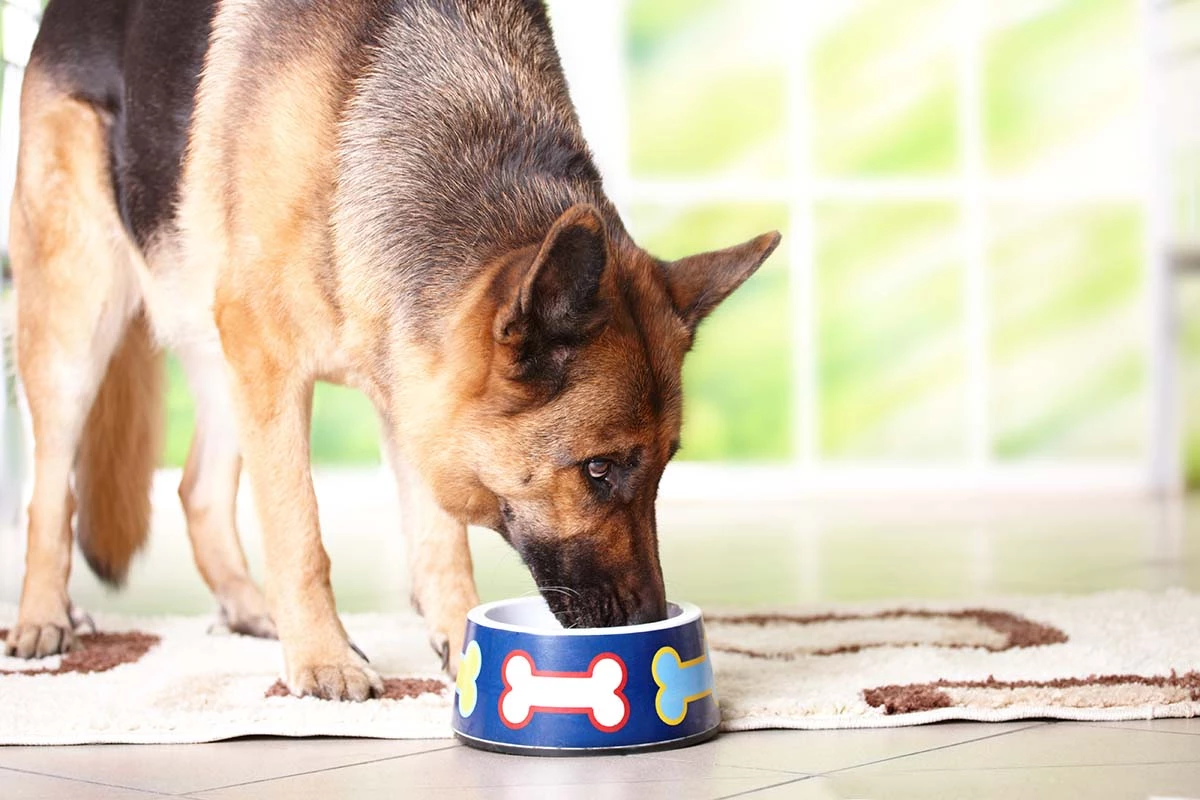
Hydration Needs: How Much Water Does a German Shepherd Need?
Hydration is a critical aspect of your German Shepherd's health. Adequate water intake supports digestion, circulation, and temperature regulation. "German Shepherds, due to their high activity levels, require constant access to fresh water to prevent dehydration," explains Dr. Robert King from Pet Health Network.
💧 Daily Water Intake: Approximately 1 gallon per 100 pounds of body weight.
🌡️ Environmental Factors: Increased water needs in hot climates or during vigorous exercise.
🥤 Fresh Water Availability: Ensure water bowls are clean and refilled regularly.
Compared to the Greyhound, which may have lower hydration needs due to their different activity patterns, German Shepherds necessitate vigilant monitoring of their water consumption. Proper hydration is essential for maintaining their physical and mental health, especially in active households.
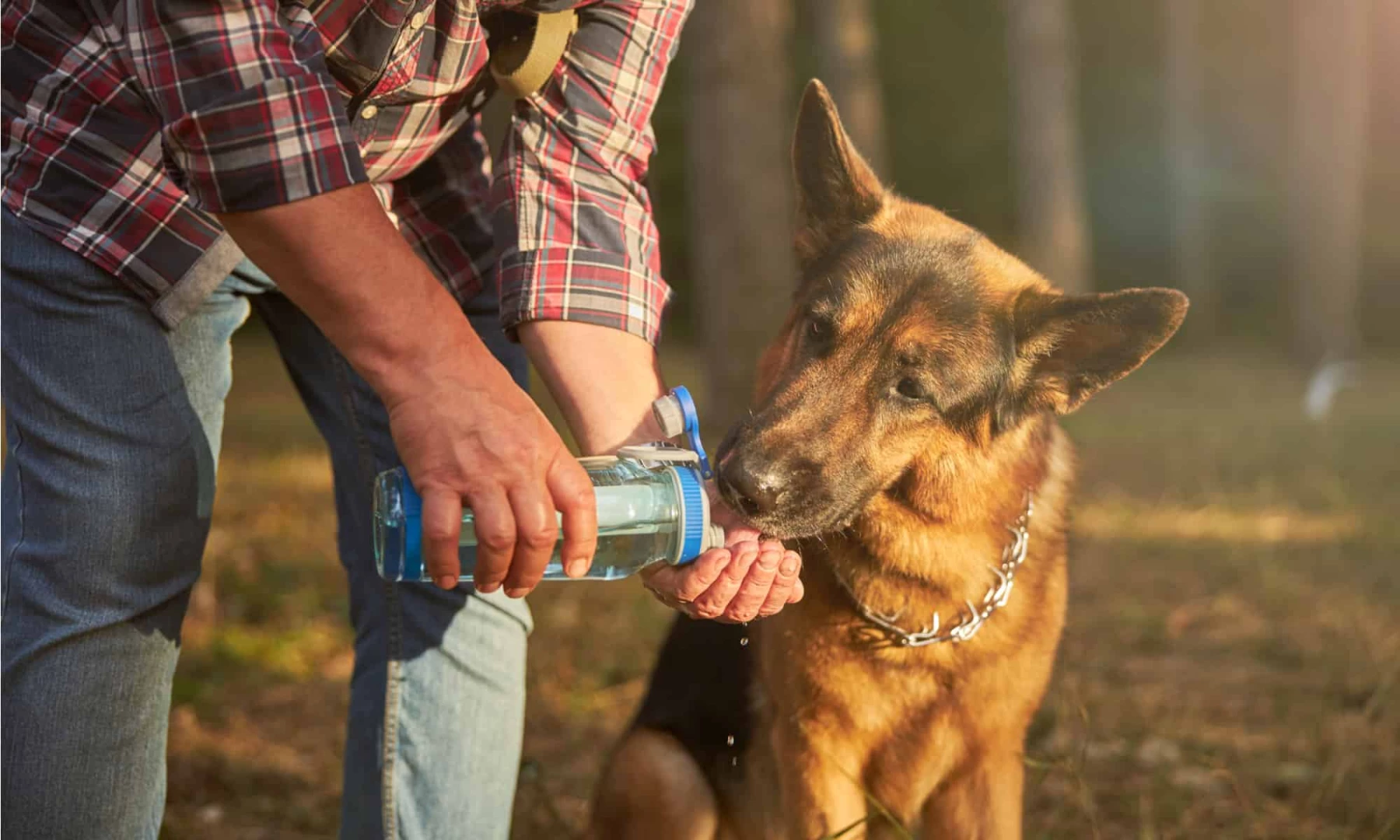
Evening Routine: Winding Down with Your German Shepherd
Relaxation and Bonding Time
Evenings are an ideal time to relax and strengthen the bond with your German Shepherd. Engaging in calming activities helps your dog wind down after a day of activity. "Quality bonding time in the evening fosters trust and deepens the emotional connection between you and your German Shepherd," notes Dr. Angela Brooks from American Animal Hospital Association (AAHA).
🛋️ Quiet Time: Cuddle or gentle petting sessions.
📺 Calm Activities: Watching TV or listening to soothing music together.
🧩 Interactive Play: Gentle games that promote mental relaxation.
Unlike the energetic Border Collie, which may require more intense evening activities, German Shepherds benefit from a balanced approach that combines relaxation with light mental stimulation. This routine helps them transition smoothly from the day's activities to a restful night.
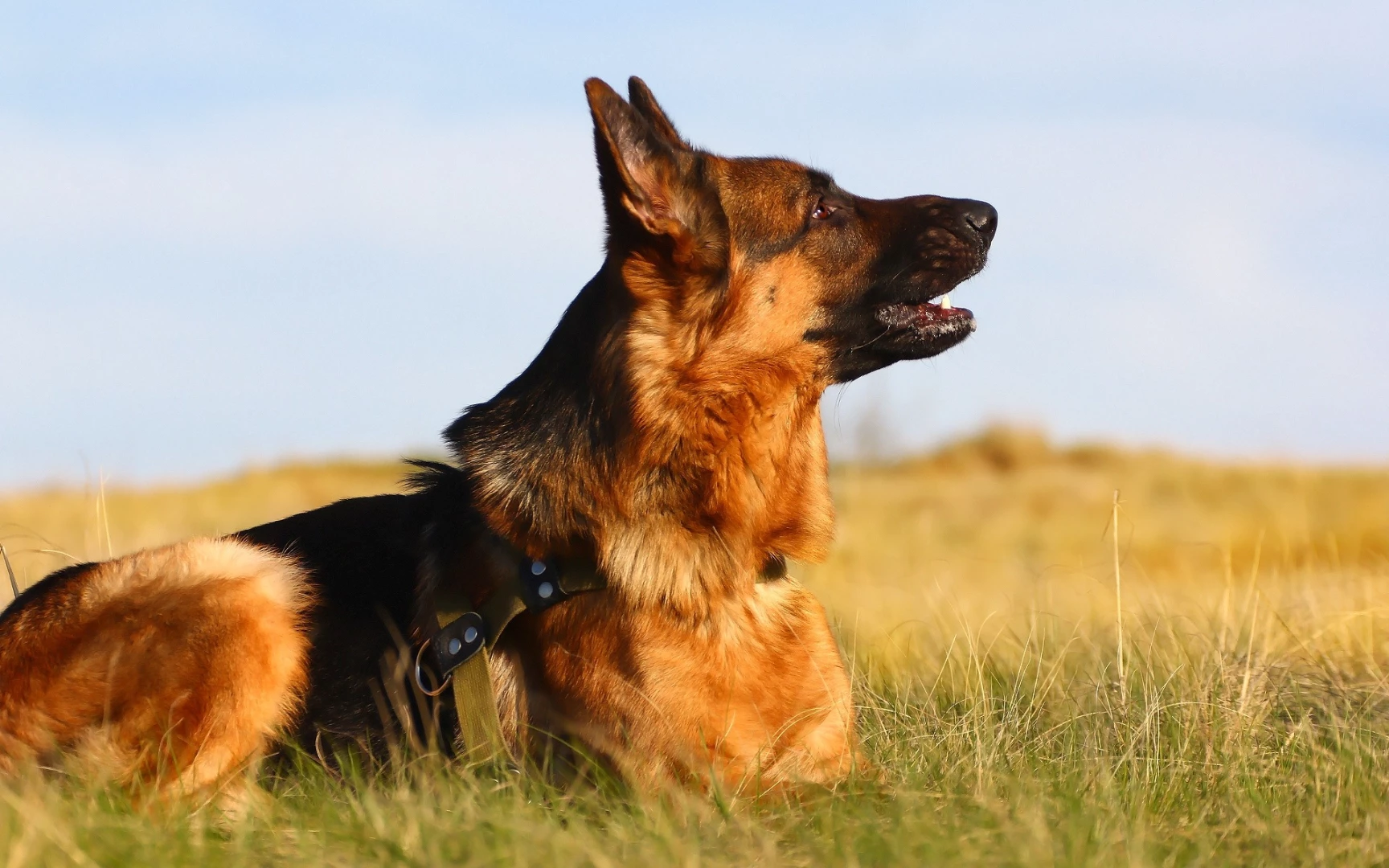
Preparing for Bedtime
A consistent bedtime routine ensures your German Shepherd feels secure and ready for sleep. Establishing a predictable end to the day can prevent anxiety and promote better sleep habits. "Creating a calming bedtime environment is crucial for your German Shepherd's overall well-being," advises Dr. Lisa Green from The Merck Veterinary Manual.
🌙 Set a Regular Bedtime: Consistency helps regulate their internal clock.
🚪 Final Bathroom Break: Ensure they have ample opportunity to relieve themselves.
🛏️ Comfortable Sleeping Area: Provide a designated, cozy space for rest.
In comparison to the more independent Dachshund, which may self-regulate its bedtime routine, German Shepherds thrive on structure and predictability. A well-established bedtime routine contributes to their mental and physical health, ensuring they wake up refreshed and ready for a new day.

Common Challenges in Daily Life with a German Shepherd
German Shepherds are known for their dense double coat, which requires regular grooming to manage shedding and maintain skin health. "Frequent brushing is essential to reduce shedding and prevent matting, especially during seasonal changes," states Dr. Henry Adams from The American Society for the Prevention of Cruelty to Animals (ASPCA).
🧼 Regular Brushing: At least twice a week, more during shedding seasons.
💇 Professional Grooming: Occasional visits to the groomer for thorough maintenance.
🛁 Bathing Routine: Bathing every 4-6 weeks to keep the coat clean and healthy.
Compared to the low-shedding Poodle, German Shepherds demand more intensive grooming efforts. Proper maintenance not only keeps your home cleaner but also ensures your German Shepherd's coat remains healthy and free from parasites.
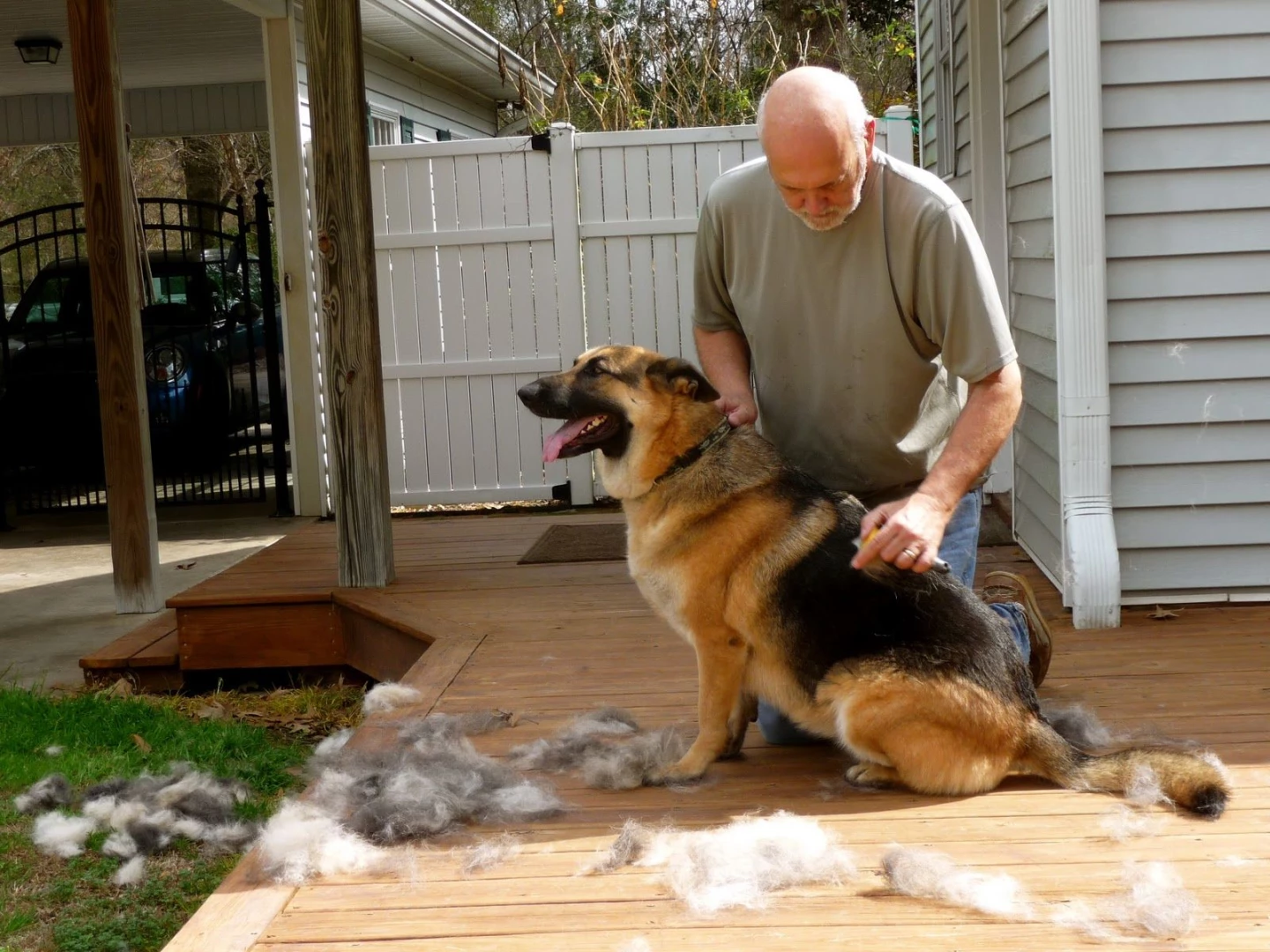
Addressing Health Concerns
German Shepherds are prone to specific health issues, including hip dysplasia, elbow dysplasia, and degenerative myelopathy. "Regular veterinary check-ups and proactive health management are vital to mitigate these common ailments," advises Dr. Samantha Reed from VCA Animal Hospitals.
🩺 Routine Vet Visits: At least twice a year for health screenings.
📊 Monitoring Weight: Prevent obesity to reduce joint stress.
💉 Vaccinations and Preventatives: Stay up-to-date with necessary treatments.
In contrast to the generally robust Labrador Retriever, German Shepherds require diligent attention to their health due to their predisposition to certain genetic conditions. Early detection and management can significantly improve their quality of life and longevity.
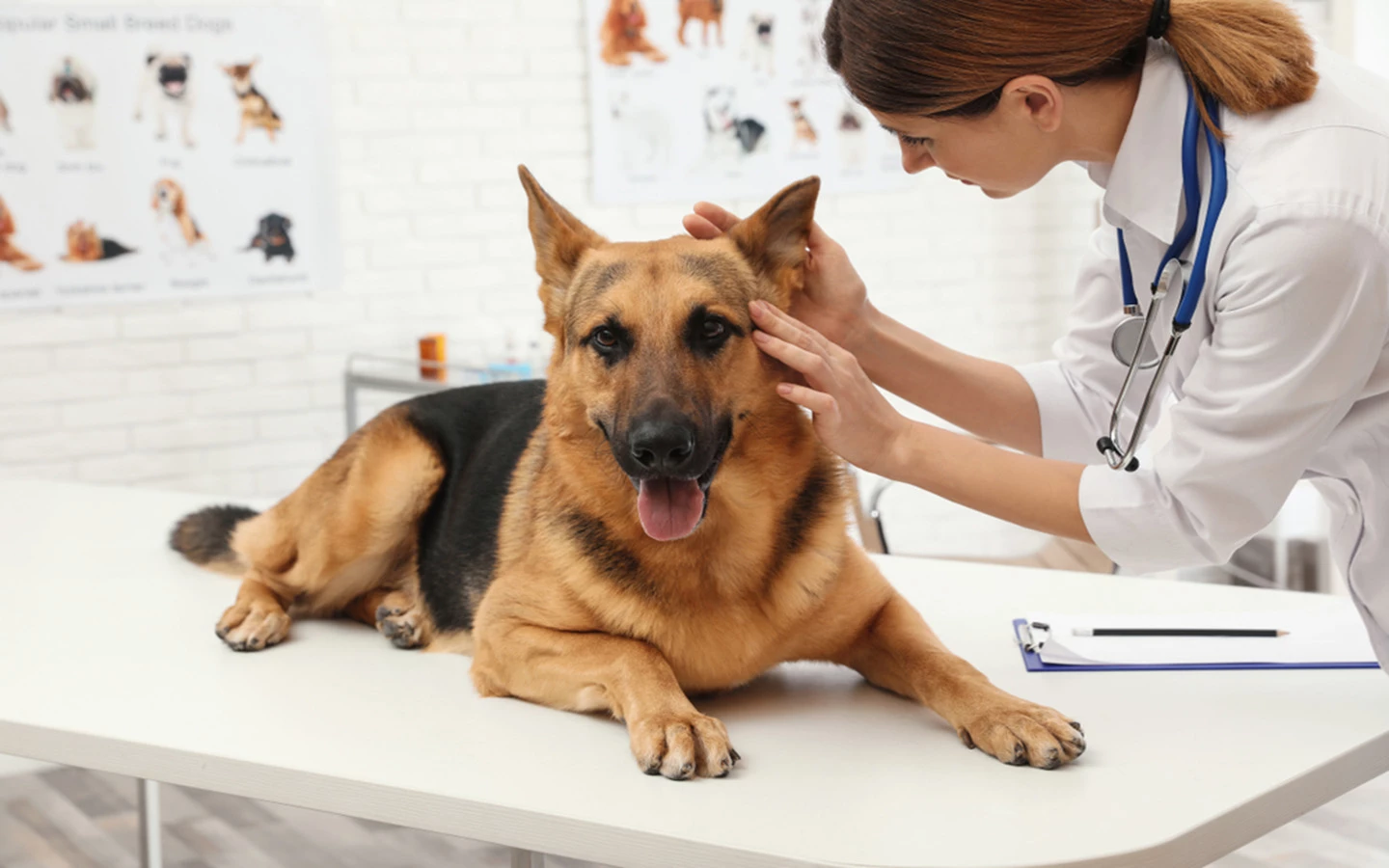
Conclusion
Daily life with a German Shepherd is a blend of structured routines, consistent training, and attentive care. Their intelligence and loyalty make them exceptional companions, but they also demand a higher level of commitment in terms of training, nutrition, and health management. By understanding and anticipating the needs of your German Shepherd, you can ensure a fulfilling and harmonious relationship. Whether you're navigating their dietary changes, managing grooming routines, or addressing behavioral challenges, informed and proactive ownership is key.
Ready to embark on this rewarding journey? Start preparing today to provide your German Shepherd with the best possible life.
External Resources
1 . American Veterinary Medical Association (AVMA)
4. PetMD
5. American Animal Hospital Association (AAHA)
6. The Merck Veterinary Manual
7. ASPCA
8. The Veterinary Information Network (VIN)
Recommendations from Veterinarians
"A structured morning routine helps in reducing anxiety and promotes a sense of security in German Shepherds." — Dr. Emily Thompson, AVMA
"Engaging your German Shepherd in tasks or training exercises can significantly enhance their cognitive functions and overall well-being." — Dr. Michael Lee, VCA Animal Hospitals
"Integrating training sessions into your daily routine not only teaches obedience but also strengthens your relationship with your German Shepherd." — Dr. Laura Martinez, AKC
"Addressing these issues promptly with appropriate training techniques is crucial for a harmonious household." — Dr. Sarah Nguyen, PetMD
"A balanced diet tailored to your German Shepherd's life stage supports their overall health and energy levels." — Dr. Karen White, VIN
"German Shepherds, due to their high activity levels, require constant access to fresh water to prevent dehydration." — Dr. Robert King, Pet Health Network
"Quality bonding time in the evening fosters trust and deepens the emotional connection between you and your German Shepherd." — Dr. Angela Brooks, AAHA
"Creating a calming bedtime environment is crucial for your German Shepherd's overall well-being." — Dr. Lisa Green, Merck Veterinary Manual
"Frequent brushing is essential to reduce shedding and prevent matting, especially during seasonal changes." — Dr. Henry Adams, ASPCA
"Regular veterinary check-ups and proactive health management are vital to mitigate these common ailments." — Dr. Samantha Reed, VCA Animal Hospitals

